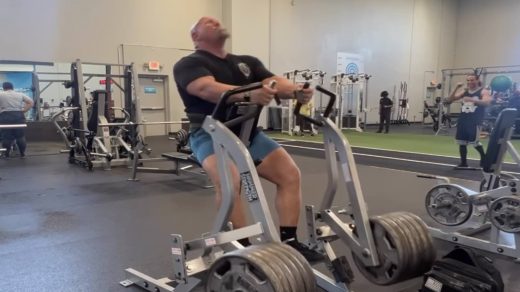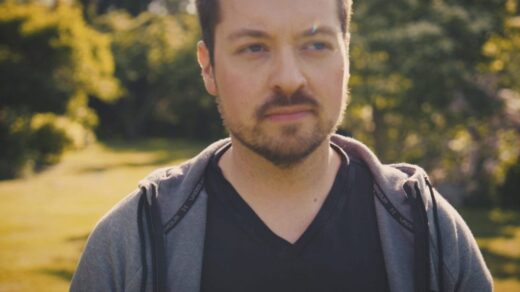A big part of preparing your application for medical school is choosing your extracurricular activities. In fact, your extracurriculars are essentially the main selection factors other than your MCAT score and GPA. Taking time to intentionally select these activities will help you develop skills that will serve you well as a future physician, as well as give you valuable experience to draw from throughout the application process. The overarching theme for selecting and developing your extracurriculars is to showcase your interest in medicine, as well as the type of person you are (ideally one well-suited to the field)! The rest of this article will highlight some of the extracurriculars for medical school that will most help you throughout your journey.
Extracurriculars for Medical School
#1 Clinical Experience
There is a huge variety of ways in which you can gain clinical experience! All of them generally involve working, in some capacity, in healthcare. Some of the most common ways to do so involve gaining experience in an entry-level position such as working as a medical scribe, medical assistant (MA), patient caregiver, certified nursing assistant (CNA) or emergency medical technician (EMT). These roles all differ from each other slightly, so it’s important to pick one that you feel you will excel most in! Additionally, EMTs, CNAs and MAs generally require training/certification. Clinical experience can also be gained through roles in clinical research or as a medical lab technician, though direct patient contact as a part of the care team is generally preferred. Pursuing this type of extracurricular gives you a deep, personal understanding of the many challenges that healthcare personnel work through regularly. Frequently, it helps people solidify their desire to pursue a career in medicine and will help you articulate specifically what you most appreciate about the field. Something to keep in mind regarding clinical experience is that it can be very different depending on the environment you’re working in. Taking a role in a field that is more broad or general, such as the emergency department or a primary care clinic, will give you the opportunity to be exposed to really diverse medical experiences and can be a great place to start!
#2 Leadership Positions
Physicians are generally considered to be the leaders of the healthcare team. As such, gaining experience in leadership roles can facilitate personal skills and characteristics to help you succeed. These include developing expertise in communication, listening, motivating people, etc. Don’t underestimate the importance of these “people skills”! Leadership roles can additionally help you demonstrate the things you’re passionate about and have actively chosen to invest your time into. Potential examples of these positions include serving as a board member of a college club/organization, coaching youth sports teams, or being a teaching assistant.
#3 Research
Conducting a research project can give you a profound understanding of the scientific process. It teaches you to develop a question, hypothesize, and then test that hypothesis in a systematic way to determine the outcome of an experiment. Though we generally follow tried-and-tested protocols in healthcare based on our understanding of pathophysiology and previous research, these skills can be hugely helpful in determining the best treatment for more complex patients. Additionally, participating in research can give you a good understanding of the immense amount of time and effort that goes into scientific discoveries. However, it is most important to conduct research on something you’re genuinely interested in! Remember that not all research has to be bench research, and you can have incredibly impactful experiences in fields like quality improvement, diversity and equity, etc. Picking research you’re interested in enables you to be actively engaged and invested in the process. Many people start research in college or pursue research positions during a gap year to gain this experience. Getting started can absolutely be daunting, but many people (myself included) start by simply sending out emails to professors conducting projects they’re interested in.
#4 Shadowing
Shadowing consists of essentially following a physician around in the clinic or at the hospital to observe their process and daily work life. Through shadowing experiences, you can gain an understanding of what the role of physician specifically entails. Additionally, you may learn about certain characteristics or skills that help physicians be successful. Frequently, people will get a feel for the type of medicine they may be more interested in practicing. Shadowing experiences can reaffirm that medicine is the right field for you, as well as help you articulate the type of physician you want to be in the future. However, it is dependent on your access to a willing physician preceptor, which may be more easily found at universities with associated medical schools, but can also be done through Motivate MD’s Virtual Shadowing.
#5 Volunteering
This is another extracurricular that can take many forms, but the most important aspect is picking something you’re personally invested and interested in! As with most experiences, it’s not about the quantity, but the quality and continued dedication, in addition to your personal reflection on what you learned from it. Examples include those that are healthcare related, such as volunteering at a hospital, on a text help line, on a medical mission trip, etc; as well as those not related to healthcare, such as volunteering in the community at soup kitchens, housing shelters, charity events, etc.
#6 Personal Passions
Developing your role and interest in something you love demonstrates intentionality and dedication to your passions. This can manifest in countless ways! Examples might include participating in club tennis, as it’s a sport you’ve enjoyed since childhood, or being an avid baker who always makes the desserts for family’s and friend’s special occasions. Ultimately, you can learn many valuable skills from the things you personally enjoy and take those with you into clinical practice. Always remember you’re a person first and staying connected to your humanity will only enable you to be both a better person and provider!
It’s important to remember that no one can be involved in absolutely everything! Instead, you’ll be most successful by choosing to do extracurricular activities that are oriented to things you enjoy and skills you’d like to develop as a future physician. Additionally, many of these experiences can be somewhat combined, or reflected upon in similar ways to demonstrate characteristics and skills you’ve developed. Ultimately, be intentional about how you’re spending your time and be sure to pursue clinical experiences to confirm that medicine is the field for you!







